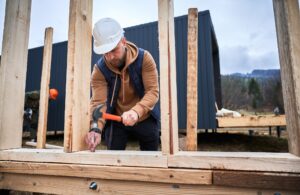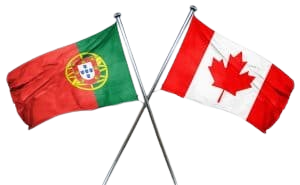🏗️ House Building Comparison: Portugal vs Canada
Building a custom home represents one of the most significant investments and personal projects individuals undertake, and the choice between constructing in Portugal versus Canada involves dramatically different cost structures, regulatory environments, and construction methodologies. For Canadians considering international construction projects, Portugal offers compelling advantages in construction costs, year-round building seasons, and streamlined approval processes that can result in substantial savings compared to Canadian construction.

Understanding the fundamental differences between Portuguese and Canadian construction industries enables informed decision-making about where to build, how to navigate regulatory requirements, and how to optimize construction budgets while achieving desired quality and design objectives. The comparison reveals opportunities for significant cost savings and enhanced construction experiences through strategic location selection.
This comprehensive analysis examines construction costs, regulatory processes, building standards, and project timelines between Portuguese and Canadian construction markets, providing essential information for Canadians considering international construction projects or investment opportunities.
🏠 Construction Cost Comparison
Base Construction Costs
Portugal Construction Costs (Per Square Meter):
| Construction Quality | Cost Range (€/m²) | Canadian Equivalent | Potential Savings |
|---|---|---|---|
| Basic/Economy | €800-1,200 | $1,200-1,800 | 40-50% |
| Standard/Mid-Range | €1,200-1,800 | $1,800-2,700 | 35-45% |
| High-End/Premium | €1,800-2,800 | $2,700-4,200 | 30-40% |
| Luxury/Custom | €2,800-4,000+ | $4,200-6,000+ | 25-35% |
Canadian Construction Costs (Per Square Foot):
| Construction Quality | Cost Range ($/sq ft) | Metro Area Variation | Regional Differences |
|---|---|---|---|
| Basic/Economy | $150-200 | Urban +20-30% | Rural -10-20% |
| Standard/Mid-Range | $200-300 | Urban +25-35% | Rural -15-25% |
| High-End/Premium | $300-450 | Urban +30-40% | Rural -20-30% |
| Luxury/Custom | $450-650+ | Urban +40-50% | Rural -25-35% |
Cost Factor Analysis:
- Labor costs: Portuguese labor 50-60% lower than Canadian rates
- Material costs: Portuguese materials 20-30% lower, some imports cost more
- Land costs: Portuguese land significantly cheaper in most regions
- Regulatory costs: Portuguese permitting faster and less expensive
- Professional fees: Portuguese architectural and engineering fees lower
Detailed Cost Breakdown

Portuguese Construction Budget (200m² house):
- Land acquisition: €50,000-200,000 (varies dramatically by location)
- Base construction: €160,000-360,000 (€800-1,800/m²)
- Finishes and fixtures: €40,000-120,000 (quality dependent)
- Professional fees: €15,000-30,000 (architects, engineers, legal)
- Permits and approvals: €3,000-8,000 (municipal and regulatory)
- Utilities connection: €5,000-15,000 (water, electricity, sewage)
- Total project cost: €273,000-733,000
Canadian Construction Budget (2,150 sq ft equivalent):
- Land acquisition: $150,000-800,000 (major market variation)
- Base construction: $300,000-650,000 ($140-300/sq ft)
- Finishes and fixtures: $75,000-200,000 (quality dependent)
- Professional fees: $25,000-50,000 (architects, engineers, permits)
- Permits and approvals: $5,000-15,000 (municipal development charges)
- Utilities connection: $10,000-25,000 (servicing and hookups)
- Total project cost: $565,000-1,740,000
Savings Analysis:
- Total project savings: 40-60% lower costs in Portugal
- Labor savings: Largest savings component, skilled trades significantly cheaper
- Material efficiency: Portuguese construction methods use materials efficiently
- Regulatory efficiency: Faster approvals reduce carrying costs and delays
- Professional services: Competitive professional service pricing
🏗️ Construction Process and Timeline
Project Development Timeline
Portugal Construction Timeline:
| Phase | Duration | Key Activities | Potential Delays |
|---|---|---|---|
| Planning/Design | 2-4 months | Architectural design, engineering | Design revisions |
| Permits | 2-6 months | Municipal approvals, environmental | Complex projects |
| Construction | 8-12 months | Foundation to completion | Weather, materials |
| Final Inspections | 1-2 months | Municipal sign-offs, utilities | Inspection scheduling |
| Total Timeline | 13-24 months | Complete project delivery | 15-30% variance |
Canadian Construction Timeline:
| Phase | Duration | Key Activities | Potential Delays |
|---|---|---|---|
| Planning/Design | 3-6 months | Architectural design, engineering | Municipal requirements |
| Permits | 3-12 months | Building permits, development approvals | Municipal backlogs |
| Construction | 6-8 months | Foundation to completion (seasonal) | Weather, labor |
| Final Inspections | 1-3 months | Occupancy permits, final approvals | Inspection backlogs |
| Total Timeline | 13-29 months | Complete project delivery | 20-40% variance |
Timeline Advantages:
- Portuguese year-round construction: Mild climate enables continuous construction
- Canadian seasonal limitations: Winter construction challenges, weather delays
- Portuguese permit efficiency: Streamlined approval processes
- Canadian regulatory complexity: Multiple approval levels, bureaucratic delays
- Portuguese professional availability: Consistent availability of trades and professionals
Regulatory Environment
Portuguese Building Regulations:
- Building codes: European construction standards, seismic requirements
- Environmental compliance: EU environmental regulations, sustainability requirements
- Municipal requirements: Local zoning, architectural guidelines, heritage considerations
- Professional oversight: Licensed architects and engineers required
- Quality control: Municipal inspections at key construction phases
Canadian Building Regulations:
- National Building Code: Federal standards adapted by provinces
- Provincial variations: Each province modifies codes for local conditions
- Municipal bylaws: Local zoning, setbacks, architectural controls
- Professional requirements: Licensed professionals, sealed drawings
- Inspection regime: Comprehensive inspection schedule, code compliance
Regulatory Comparison:
- Portuguese harmonization: EU-wide standards, consistent requirements
- Canadian fragmentation: Federal, provincial, municipal layers
- Portuguese efficiency: Streamlined approval processes, digital submissions
- Canadian complexity: Multiple approval authorities, overlapping jurisdictions
- Portuguese innovation: Modern codes embracing new technologies
🏘️ Land Acquisition and Site Preparation
Land Costs and Availability
Portuguese Land Market:
- Rural land: €5-50/m² depending on location and services
- Suburban land: €50-300/m² near cities, with utilities
- Urban land: €300-1,000/m² in prime city locations
- Coastal land: €200-2,000/m² depending on proximity to beach
- Mountain/interior: €2-20/m² remote areas, limited services
Canadian Land Market:
- Rural land: $10-100/m² depending on province and proximity
- Suburban land: $200-800/m² serviced lots near cities
- Urban land: $500-2,000/m² prime city locations
- Waterfront land: $500-5,000/m² depending on location and access
- Remote land: $5-50/m² unserviced rural properties
Land Acquisition Process:
- Portuguese advantages: Simpler purchase process, lower transaction costs
- Canadian complexity: Multiple approval layers, higher legal costs
- Portuguese flexibility: More negotiable terms, relationship-based deals
- Canadian formality: Structured process, extensive due diligence
- Portuguese speed: Faster closing times, less bureaucracy
Site Development Requirements
Portuguese Site Preparation:
- Surveying: €1,000-3,000 professional survey and site analysis
- Geotechnical: €2,000-5,000 soil analysis and foundation design
- Utilities: €5,000-15,000 water, electricity, sewage connections
- Access roads: €2,000-10,000 driveway and site access
- Environmental: €1,000-3,000 environmental impact assessment
Canadian Site Preparation:
- Surveying: $2,000-5,000 professional survey and legal plan
- Geotechnical: $3,000-8,000 soil analysis and environmental testing
- Utilities: $10,000-30,000 municipal connections and servicing
- Access roads: $5,000-20,000 driveway and municipal standards
- Environmental: $3,000-10,000 environmental assessments
Site Development Advantages:
- Portuguese cost efficiency: Lower professional and connection costs
- Canadian infrastructure quality: Higher standard municipal services
- Portuguese flexibility: More accommodation for site constraints
- Canadian standardization: Predictable requirements and processes
- Portuguese speed: Faster utility connections and approvals
🔨 Construction Materials and Methods
Material Costs and Availability
Portuguese Construction Materials:
| Material Category | Cost Advantage | Quality/Standards | Availability |
|---|---|---|---|
| Concrete/Masonry | 30-40% lower | EU standards | Excellent |
| Steel/Rebar | 20-30% lower | European grades | Good |
| Lumber/Wood | 10-20% higher | Limited local | Import dependent |
| Tiles/Ceramics | 40-50% lower | World-class | Excellent |
| Insulation | 20-30% lower | EU efficiency | Good |
| Windows/Doors | 30-40% lower | European quality | Excellent |
Canadian Construction Materials:
| Material Category | Cost Factor | Quality/Standards | Availability |
|---|---|---|---|
| Lumber/Wood | Base price | CSA standards | Excellent |
| Concrete/Masonry | Standard | CSA standards | Good |
| Steel/Rebar | Standard | CSA grades | Good |
| Insulation | Standard | Energy codes | Excellent |
| Windows/Doors | Premium | Energy Star | Good |
| Imported Materials | 20-50% premium | Variable | Limited |
Material Strategy:
- Portuguese strengths: Stone, tile, concrete products excel in quality and cost
- Canadian strengths: Wood products, insulation systems, advanced building systems
- Import considerations: Some Canadian materials worth importing to Portugal
- Local adaptation: Portuguese materials well-suited to Mediterranean climate
- Quality standards: Both countries maintain high construction material standards
Construction Methodologies
Portuguese Construction Methods:
- Masonry construction: Concrete block, stone, traditional techniques
- Reinforced concrete: Earthquake-resistant construction, European standards
- Thermal mass: Traditional thermal mass design for climate control
- Tile and stone: Extensive use of ceramic and natural stone
- Mediterranean design: Climate-appropriate design principles
Canadian Construction Methods:
- Wood frame construction: Platform framing, engineered lumber systems
- Insulation focus: High-performance insulation, vapor barriers
- HVAC systems: Comprehensive heating, ventilation, air conditioning
- Energy efficiency: Advanced building envelope, energy codes
- Cold climate design: Winter construction considerations, thermal bridging
Construction Quality:
- Portuguese durability: Stone and masonry construction built to last centuries
- Canadian efficiency: Modern building systems, energy performance focus
- Portuguese craftsmanship: Traditional building skills, attention to detail
- Canadian innovation: Advanced building technologies, system integration
- Portuguese adaptation: Climate-appropriate design and materials
👷 Labor and Professional Services
Construction Labor Market
Portuguese Construction Workforce:
- Skilled trades: €15-25/hour experienced craftsmen
- General laborers: €8-12/hour basic construction work
- Specialized trades: €20-35/hour plumbing, electrical, HVAC
- Project management: €200-400/day construction management
- Artisan work: €25-50/hour traditional stonework, tile setting
Canadian Construction Workforce:
- Skilled trades: $35-55/hour experienced journeymen
- General laborers: $20-30/hour basic construction work
- Specialized trades: $40-75/hour plumbing, electrical, HVAC
- Project management: $500-1,000/day construction management
- Custom work: $50-100/hour specialized craftsmanship
Labor Availability:
- Portuguese workforce: Abundant skilled labor, traditional crafts knowledge
- Canadian challenges: Labor shortages, high wage pressures
- Portuguese training: Strong apprenticeship programs, multi-generational skills
- Canadian certification: Comprehensive trade certification, safety training
- Portuguese flexibility: More flexible work arrangements, seasonal adaptation
Professional Services
Portuguese Professional Fees:
- Architects: €50-150/m² design fees (3-8% of construction)
- Engineers: €20-50/m² structural and MEP engineering
- Project management: €100-300/day construction oversight
- Legal services: €1,000-3,000 construction legal support
- Municipal liaison: €500-2,000 permit and approval assistance
Canadian Professional Fees:
- Architects: $10-25/sq ft design fees (8-15% of construction)
- Engineers: $5-15/sq ft structural and MEP engineering
- Project management: $500-1,200/day construction oversight
- Legal services: $3,000-8,000 construction legal support
- Municipal liaison: $2,000-5,000 permit and approval assistance
Professional Service Quality:
- Portuguese design: Strong architectural tradition, Mediterranean expertise
- Canadian technical: Advanced engineering, energy efficiency focus
- Portuguese relationships: Local knowledge, municipal connections
- Canadian process: Systematic approach, comprehensive documentation
- Portuguese value: High-quality services at competitive pricing
🏡 Quality and Design Considerations
Construction Quality Standards
Portuguese Quality Focus:
- Durability emphasis: Buildings designed for multi-generational use
- Seismic resistance: Earthquake-resistant construction throughout country
- Thermal performance: Climate-appropriate thermal mass design
- Moisture management: Mediterranean climate moisture control
- Traditional techniques: Time-tested construction methods
Canadian Quality Focus:
- Energy efficiency: High-performance building envelope
- Thermal comfort: Advanced HVAC systems, climate control
- Moisture control: Vapor barriers, air sealing, winter condensation
- Code compliance: Comprehensive building code adherence
- Safety systems: Advanced fire safety, structural safety
Quality Comparison:
- Portuguese longevity: Construction designed for 100+ year lifespan
- Canadian efficiency: Modern systems focus, 50-year design life
- Portuguese simplicity: Elegant solutions, minimal mechanical systems
- Canadian complexity: Sophisticated building systems, high maintenance
- Portuguese sustainability: Passive design principles, natural materials
Design and Architectural Considerations
Portuguese Design Characteristics:
- Mediterranean style: Traditional Portuguese architectural elements
- Indoor-outdoor living: Terraces, courtyards, outdoor spaces
- Natural materials: Stone, tile, wood integration
- Climate responsiveness: Design for year-round outdoor living
- Cultural integration: Respect for local architectural traditions
Canadian Design Characteristics:
- Climate protection: Emphasis on interior comfort, weather protection
- Energy efficiency: Advanced insulation, mechanical systems
- Modern amenities: Comprehensive utility systems, technology integration
- Flexible spaces: Open concept, multi-purpose room design
- Material efficiency: Engineered materials, construction efficiency
Design Adaptation:
- Portuguese advantages: Climate enables simplified systems, outdoor living
- Canadian necessities: Complex systems required for climate survival
- Portuguese aesthetics: Beautiful traditional design elements
- Canadian functionality: Practical design for demanding climate
- Hybrid approaches: Combining best elements from both traditions
📊 Investment and Return Analysis
Construction as Investment
Portuguese Construction Investment:
- Capital appreciation: 3-6% annual property value growth
- Rental yields: 4-7% annual rental returns possible
- Construction cost recovery: Lower construction costs improve ROI
- Market demand: Growing international demand for Portuguese properties
- Tax advantages: Potential NHR benefits for investors
Canadian Construction Investment:
- Capital appreciation: 2-5% annual property value growth (regional variation)
- Rental yields: 3-6% annual rental returns typical
- Construction cost impact: High construction costs reduce ROI
- Market stability: Stable Canadian real estate markets
- Tax implications: Canadian tax on rental income, capital gains
Investment Comparison:
- Portuguese ROI: Lower construction costs enable better returns
- Canadian stability: More predictable market performance
- Portuguese growth: Higher growth potential in emerging markets
- Canadian liquidity: Easier property sale and exit strategies
- Portuguese lifestyle: Investment property provides lifestyle benefits
Total Cost of Ownership
Portuguese Ownership Costs:
- Property taxes: 0.3-0.8% annually of property value
- Maintenance: €1,000-3,000 annually depending on property size
- Insurance: €300-800 annually property and liability coverage
- Utilities: €100-300 monthly depending on size and systems
- Management: €1,000-3,000 annually if using property management
Canadian Ownership Costs:
- Property taxes: 1-3% annually of assessed value (varies by municipality)
- Maintenance: $2,000-6,000 annually depending on property and climate
- Insurance: $800-2,000 annually property and liability coverage
- Utilities: $200-500 monthly depending on size and heating systems
- Management: $2,000-5,000 annually if using property management
Ownership Advantages:
- Portuguese lower ongoing costs: Significantly lower property taxes and maintenance
- Canadian service availability: More comprehensive maintenance and management services
- Portuguese climate benefits: Lower heating costs, less weather damage
- Canadian infrastructure: More reliable utility systems, municipal services
- Portuguese lifestyle: Year-round property usage, vacation potential
Building a house in Portugal versus Canada presents compelling advantages for Canadian builders seeking cost-effective construction solutions, year-round building seasons, and access to traditional European craftsmanship. The potential for 40-60% cost savings, combined with excellent construction quality and streamlined approval processes, makes Portugal an attractive alternative for custom home construction.
Understanding the differences in construction methods, regulatory environments, and cultural approaches enables successful project navigation while maximizing the advantages of Portuguese construction. The combination of lower costs, skilled labor, and Mediterranean design principles creates opportunities for exceptional custom homes at accessible price points.
Success in Portuguese construction requires cultural adaptation, professional relationship building, and appreciation for traditional construction methods that emphasize durability and climate-appropriate design over complex mechanical systems and high-maintenance building envelopes.
Consider Portuguese construction as part of comprehensive international lifestyle planning that maximizes construction budget efficiency while accessing European quality of life and traditional building craftsmanship that creates homes designed for generations of enjoyment and value appreciation.
The investment in Portuguese construction provides not only cost savings but also lifestyle enhancement through access to Mediterranean living, European cultural richness, and construction quality that reflects centuries of refined building traditions adapted to modern living requirements.
Ready to Explore Portuguese Construction? Contact the Portuguese Embassy in Ottawa for construction and residency information and connect with Portuguese architects and builders for project consultation and cost estimation.
Construction Resources:
- Portuguese Architects Association: Licensed architects and design professionals
- Portuguese Construction Industry: Industry information and contractor directory
- Portuguese Building Codes: Building regulations and permit information
- Municipal Building Departments: Local building permit and approval authorities
This comparison provides general construction information and should not replace professional architectural, engineering, or legal advice. Construction regulations and costs vary significantly by location and project complexity. Qualified professionals should be consulted for specific construction projects and investment decisions.
